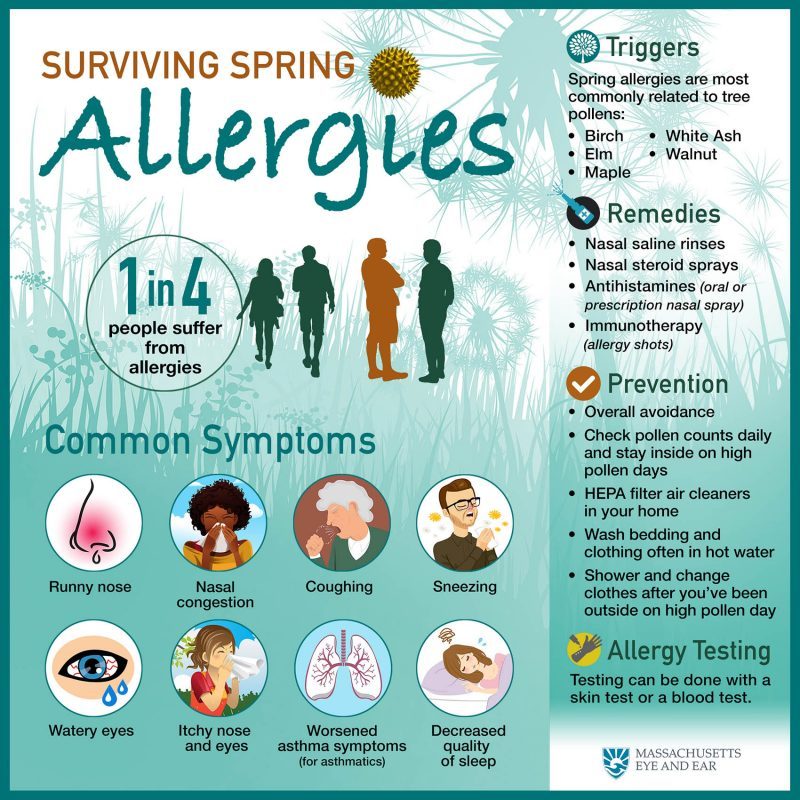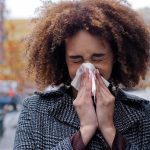Spring weather and flowers are in bloom throughout Massachusetts, and with that, comes an uptick in spring allergens, like pollen. We checked in experts at the Sinus Center at Mass. Eye and Ear, who helped us develop a “survival guide” to the season.
Spring Allergy Basics
- Allergies affect 25 percent of the world’s population (or 1 in 4 people).
- Spring is the most common seasonal allergy in children, while summer allergies are most common in adults.
- Tree pollen is the culprit of most spring allergies — with birch, elm, maple, white ash and walnut trees being the biggest triggers.
- Runny noses, nasal congestion, sneezing, watery eyes and itchy noses and eyes are among the most common symptoms of spring allergies.
- Allergies may impact other conditions. For example, they can make asthma worse, and they can negatively impact sleep quality.
How to Survive?
- Avoidance — stay inside on days with high pollen counts (check this website for pollen counts, maintained by the American Academy of Allergy, Asthma and Immunology).
- Air filters — install a HEPA filter to clean the air in your home.
- Change your clothing when coming inside the house.
If you need further relief, talk to your doctor about pharmacologic therapies, including nasal saline rinses to wash allergens out of the nose, nasal steroid sprays, oral antihistamines and allergy shots.
Got questions about caring for your sinus and nasal symptoms during the COVID-19 pandemic? Watch this webinar from Dr. Benjamin Bleier of the Mass. Eye and Ear Sinus Center for more information.





Hi, my nose started to itch last night when I was doing my homework and it made me sniffle and I don’t know why I was just sitting there doing my work and my nose started to itch. I can’t seem to get the sneeze out. Every time I sniffle my nose gets itchier.